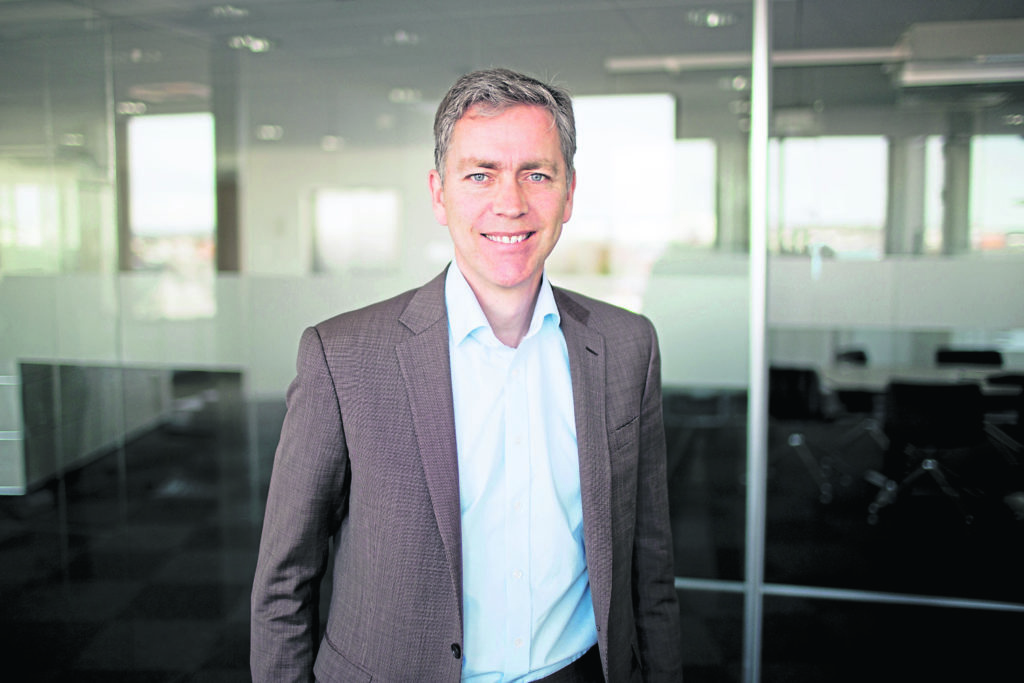
Oil exploration and production (E&P) firms that are trying to reduce the number of suppliers they deal with are taking a “schizophrenic” approach to business, a Norwegian investment expert said.
Operators can be blinded by the apparent financial and time-saving benefits of only having to speak to one supplier to secure a bundle of services.
Tier one service companies often have the same problem when looking down the supply chain.
Helge Tveit, managing partner at EV Private Equity (EVPE), said the oil and gas industry needs diversity, not consolidation, for technology development to work.
He singled out Aker BP for praise regarding its attitude to technology development, saying the operator reaches out to make sure small vendors are heard.
If other large operators do not follow Aker BP’s lead, the challenge for smaller technology developers to come up with pioneering products becomes more difficult.
Mr Tveit said: “Consolidation limits the incentive to develop the next generation of technology. Big suppliers need the competition like everyone else to innovate.
“Competition is a wonderful thing and E&P companies need to be aware of this and compensate for their procurement strategies which are driving towards a minimum number of suppliers.”
The Norwegian continental shelf has experienced less supply chain consolidation than the UK North Sea.
Of course, transactions have taken place, depending on the particular segment being focused on.
Mr Tveit said: “For the supply vessels’ side and on the marine side it has been a bloodbath with a lot of consolidation.
“But, for more traditional engineering firms, there have been a couple of acquisitions; it has not been on the same scale as in other regions.
“I think it is driven from desperation and the fear of bankruptcy. If someone is going to be in the driving seat for an acquisition they need a strong balance sheet, but most suppliers in Norway are struggling quite a bit.”
He believes the sentiment in the oil and gas industry is getting better after three years of cost reductions and adapting to lower oil prices.
EVPE has teams in Aberdeen, Houston and Stavanger, which gives it a good insight into different regions’ prospects.
Mr Tveit said: “We can look at those markets at the same time and feel the winds of change.
“In the US, shale activity is high, while in Norway and the UK, oil companies have done a good job of reducing their breakeven price. It has been a quite tremendous effort.
“Even during the downturn our outlook for the offshore sector was quite bright.
“The concern with shale is the rapid decline in production. The profitability of that sector is not something that represents a significant threat to larger offshore developments or even tiebacks.”
EVPE kept its powder relatively dry in the UK North Sea during the downturn.
But capital was channelled into the likes of energy consultancy Westwood Global, offshore engineering firm Aquaterra Energy and production optimisation specialist Enpro.
It also pumped more than £3.75 million into well construction business Deep Casing Tools earlier this year.
Mr Tveit said all of EVPE’s portfolio companies are doing better, even though a lot of the supply chain is still struggling to turn a profit.
The wider Norwegian market remains somewhat subdued because exploration has yet to really take off.
EVPE’s investments in Norway include FourPhase, whose de-sander system optimises production by extracting sediment from the well flow. HalfWave boasts acoustic technology for improving pipeline and riser inspection.
EVPE is always on the hunt for new opportunities and is moving into a phase of “growth investment” after a number of years of having to focus predominantly on supporting its existing portfolio.
Mr Tveit said the company looked at 30 to 60 possible transactions every month, but ends up investing in just 1% of what it sees.
EVPE’s criteria are exacting. It focuses on investing in technology companies that can reduce costs and improve productivity for operators.
They must be able to make a difference straight away, too.
“Now oil companies are looking for immediate benefit from new technology,” Mr Tveit said. “A short-term focus has emerged for E&P players. Before, you could take a product to them and say, ‘in 12 to 18 months you will get the benefit’.
“That just does not work anymore. That has implications for us.
“We’re looking to move more into the rental model rather than upfront sales. That’s an interesting twist.
“We find it much more attractive to invest in businesses with a relatively short time line to being a ‘real company’, by which I mean they have an existing portfolio and existing development programme.
“Our businesses are not going to live and die by one product, though you can make fantastic returns there.
“There are companies that say they are working on technology that is going to upend the market. We think it’s quite difficult to be responsible for a revolution in oil and gas.
“Sometimes adoption is very challenging and time consuming if you are trying to change the work flow of an oil company.
“Some people say they are going to completely change the way companies drill wells.
“Then you need to wait for an entire generation of drillers and engineers to die or retire.
“That’s not for us.”
The investment firm is helped in its quest to find new portfolio companies by so-called operating partners – a panel of senior oil executives who spend a chunk of their time exclusively with EVPE.
They have connections in different regions and provide insights on possible targets and expansion opportunities for existing portfolio companies.
“Hooking up with the wrong partner is very time consuming so we are very happy with our operating partners,” Mr Tveit said.
Recommended for you
